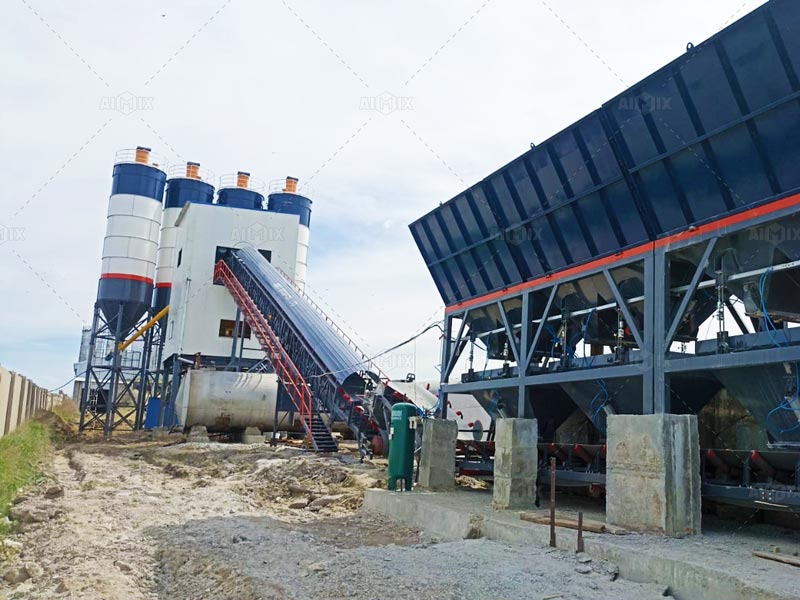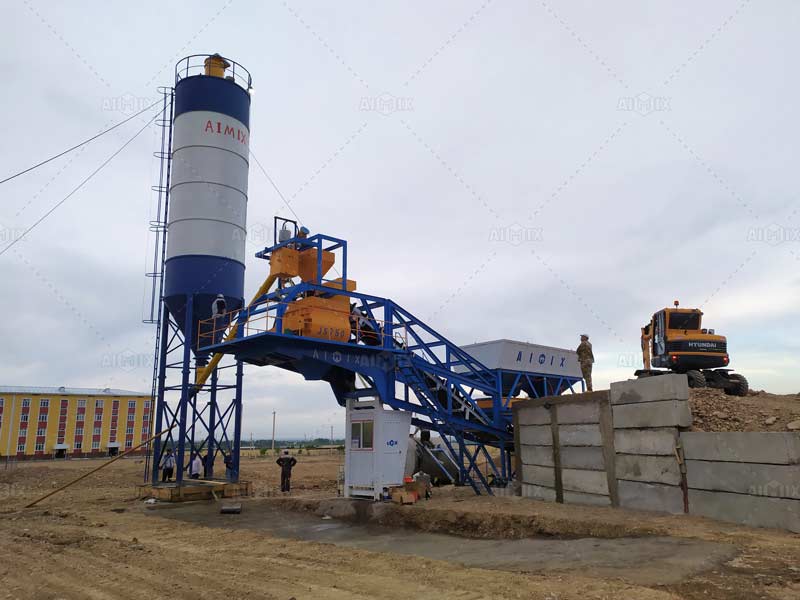A concrete plant operator plays a crucial role in the construction industry, overseeing the production of concrete for various projects. From large-scale ready mix concrete plants to mobile and small concrete plants, operators ensure that concrete is mixed precisely to meet quality standards and delivered on time. This role requires a blend of technical skills, attention to detail, and operational expertise. In this article, we’ll cover the essential skills and responsibilities of a concrete plant(planta concreto) operator to provide a clear understanding of what it takes to succeed in this field.

What Does a Concrete Plant Operator Do?
Understanding the Basics of a Concrete Plant
Concrete plant operators are responsible for managing concrete production, often in different types of plants such as ready mix concrete plants, mobile concrete plants(plantas de concreto móviles), and small concrete plants. Each plant type has unique operational needs, but the primary goal remains the same: producing high-quality concrete that meets project specifications.
Core Responsibilities of a Concrete Plant Operator
The role of a concrete plant operator involves numerous responsibilities that ensure the smooth operation of the plant. Key responsibilities include:
- Overseeing Concrete Mixing Processes
Operators must closely monitor the mixing process, ensuring the right amount of water, cement, sand, and aggregate are combined to achieve the required consistency and strength. They adjust the formula as needed for different types of concrete, ensuring precise mixtures. - Maintaining Equipment
Routine equipment checks are essential for smooth operations. Operators inspect mixers, conveyors, silos, and other machinery to prevent malfunctions. Regular maintenance helps avoid costly downtime and ensures safety standards are upheld. - Quality Control
Quality control is a major responsibility, as concrete must meet strict quality standards. Operators test concrete samples to verify its properties, such as slump, strength, and setting time, to ensure it meets project requirements. - Monitoring Production Rates and Output
Operators are responsible for maintaining optimal production rates while minimizing waste. They manage inventory, monitor production output, and adjust workflows to ensure steady and efficient production. - Record Keeping
Concrete plant operators maintain detailed records of production data, equipment maintenance, and material usage. Accurate records are crucial for both operational analysis and regulatory compliance. - Ensuring Safety Protocols
Operators follow strict safety guidelines to prevent accidents. This includes using personal protective equipment (PPE), conducting safety inspections, and training team members on safety protocols.

Essential Skills for a Concrete Plant Operator
Technical Proficiency
Concrete plant operators need a solid understanding of the machinery and technology used in concrete production. This includes knowledge of batching systems, automated control panels, and mixing equipment. Operators who work in mobile concrete plants or small concrete plants(plantas de concreto pequeñas) may also need to be skilled in troubleshooting and repairs, as these setups may have less support on-site.
Attention to Detail
A high level of precision is required when mixing concrete, as even minor deviations in measurements can affect the strength and durability of the final product. Operators must carefully monitor the ratios of ingredients and make real-time adjustments as needed, especially in ready mix concrete plants where quality consistency is essential.
Problem-Solving Skills
Concrete production involves complex machinery, and issues can arise unexpectedly. An effective concrete plant operator must have strong problem-solving skills to troubleshoot equipment malfunctions or correct deviations in production without significant delays.
Communication and Teamwork
Operators often work as part of a larger team, coordinating with truck drivers, quality control personnel, and project managers. Strong communication skills are necessary to ensure everyone is on the same page, especially in larger concrete plants or ready mix concrete plants with multiple team members involved.
Time Management
Production schedules are crucial in concrete manufacturing, and time management is an essential skill. Operators need to meet daily production targets without compromising quality or safety. Effective time management is particularly important for operators of mobile concrete plants, where setup and dismantling add time constraints to the production process.
Knowledge of Safety Standards
Safety is a top priority in any industrial setting, and concrete plants are no exception. Concrete plant operators must be familiar with OSHA standards and other safety regulations to ensure both personal safety and the safety of the entire crew. This includes conducting routine safety checks, adhering to operational guidelines, and enforcing PPE requirements.
Specialized Responsibilities in Different Types of Concrete Plants
Ready Mix Concrete Plant Operators
Operators in ready mix concrete plants(fabricas de concreto premezclado) focus heavily on quality control, as the concrete must meet strict specifications before it’s transported to the site. Ready mix operators work with automated batching systems to ensure consistency, and they must coordinate closely with delivery drivers to ensure the concrete arrives on time and in optimal condition.
Mobile Concrete Plant Operators
Mobile concrete plants are often used in remote or temporary locations, where on-demand concrete production is necessary. Operators of mobile concrete plants need to be highly adaptable, as they are often responsible for setting up, calibrating, and dismantling equipment. They also handle logistics, coordinating with suppliers and transportation to ensure timely material delivery.
Small Concrete Plant Operators
In small concrete plants, operators often manage a wider range of tasks due to the limited team size. These operators may take on additional roles, such as quality control testing, maintenance, and even logistics. Small concrete plants are typically used for localized projects, making flexibility and multitasking valuable skills for operators in these environments.
Training and Certification for Concrete Plant Operators
Training Programs
Most concrete plant operators gain their skills through on-the-job training. Some companies offer structured training programs that cover the fundamentals of concrete production, equipment maintenance, and safety protocols. Training also focuses on quality control processes to ensure operators understand the importance of consistency in concrete production.
Certification and Licensing
In some regions, concrete plant operators are required to hold certifications or licenses, especially when working with automated batching systems. Certifications, such as the ACI (American Concrete Institute) Concrete Field Testing Technician certification, validate an operator’s knowledge of concrete properties and testing procedures. Certified operators are generally more qualified to handle complex production tasks and quality assurance processes.
Conclusion
Concrete plant operators play a vital role in ensuring that concrete is produced efficiently, safely, and to the highest quality standards. From operating batching systems to conducting quality control tests, operators must possess a range of technical and interpersonal skills to succeed in this dynamic industry. Whether working in a large ready mix concrete plant, a mobile setup, or a small concrete plant, skilled operators help keep construction projects on track, providing consistent and reliable concrete output.
If you’re considering a career as a concrete plant operator or looking to hire one, understanding these key skills and responsibilities can help you make informed decisions. With the right training and a commitment to safety, concrete plant operators can thrive in a field that is essential to the construction industry.